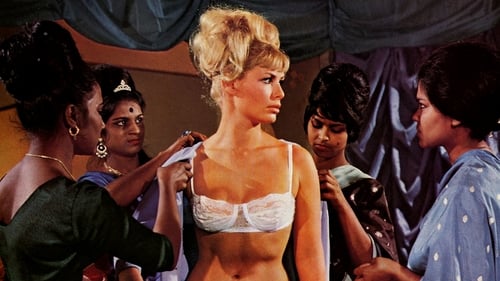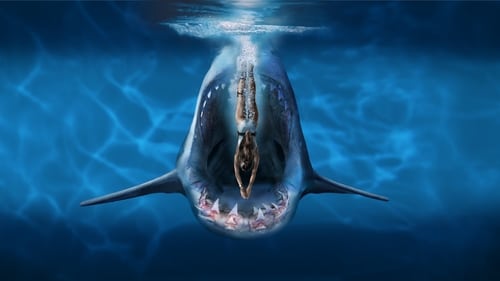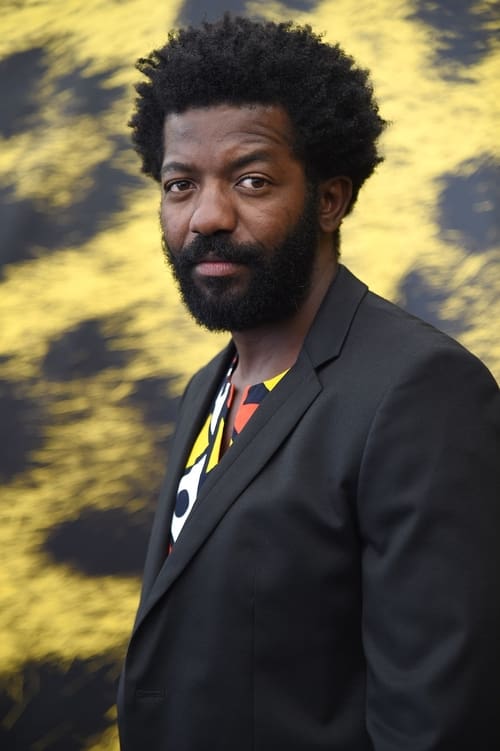Comboio de Sal e Açucar (2016)
Gênero : Aventura, Drama, Guerra
Runtime : 1H 33M
Director : Licínio Azevedo
Escritor : Licínio Azevedo, Teresa Pereira, Filipe Santos
Sinopse
Em 1989, Moçambique é um país arruinado pela guerra civil. O trem que liga Nampula ao Malawi é a única esperança para as pessoas dispostas a arriscar suas vidas a trocar alguns sacos de sal por açúcar. Correndo devagar por trilhas sabotadas, a jornada é cheia de obstáculos e violência. Mariamu, uma viajante frequente, compartilha sua viagem com sua amiga Rosa, uma enfermeira que está indo para seu novo hospital, vivendo a realidade da guerra pela primeira vez, tenente Taiar, que só conhece a realidade de sua vida militar, e outro soldado , Salomão, com quem ele não se dá bem. Entre balas e risadas, histórias de amor e guerra se desenrolam à medida que o trem avança em direção à próxima parada.

This feature-length biography traces the journey of Heidi Baker, a modern day Mother Theresa, as The Baker’s pursuit of the presence of God has transformed a poverty-stricken and war torn Mozambique through love in action. Shot on the run over a period of 20 years, in 10 countries and on 4 continents in war zones, brothels, and Ivy League campuses, from Hollywood to Mozambique, this film chronicles the power of one life fully yielded to God and the truth that love wins.

Two boys with different experiences and goals meet up in a sprawling African market. One is looking for a job, to get back what was stolen from him and return home. The other will do anything to avoid having to go back with his family. They become friends and together they reinvent the world.

Sofia, a young girl in Mozambique who is studying to be a doctor, finds that her professor wants more from her than hard work. An unwillingness to compromise her values and potentially her health, may cost her a place there.

A small island, a great history. Long before giving its name to the country, the Mozambique island had a fundamental role in the Indian Ocean during centuries. Anchor point for caravels, meeting point for pirates, it is a melting pot of races. It raises its walls in the middle of the sea. Its winding streets full of life reveal small palaces, churches and white houses. Its inhabitants are eccentric characters, proud of the island's past history. As we wander through the streets we meet an historian, a maritime archaeologist, a fisherman, the "doorman" of the island, a dancer, many spirits...

As children, a Mozambique native and a Portuguese colonialist were friends. Years have passed and Mozambique is fighting for its independence. Two childhood friends meet on opposing sides.

Based on the book by Henning Mankell (Sweden), this story takes place in Mozambique and is about a young boy, Nelio, who loses his entire family during a time of civil war. A wounded Nelio is found by a baker in the capital Mapouto; refusing medical treatment, the boy instead asks for sanctuary so he can tell his terrible tale. This he proceeds to do, starting with how the fighters arrived in his village and slaughtered many, to his captivity, his escape and his teaming with other orphaned street urchins to become their leader in survival.

Documentary on Mozambican music, and the role it played in the country's rediscovering its national identity after centuries of colonial rule.

Mueda was a massacre. The name is that of the village in Northern Mozambique where in 1960 it took place. The Portuguese colonial regime did the killing. In independent Mozambique, those inhabitants of Mueda who survived regularly re-enact the massacre in situ. They themselves play the roles of victims, assassins, and spectators. Ruy Guerra, now a Brazilian but born in Lourenço Marques (now Maputo, the capital of Mozambique), filmed this extraordinary creation of liberated popular culture, intercutting it with first-hand interviews on the massacre. The mix is compelling, and the grave yet joyous spectacle unique.

An American pilot assists the Portuguese colonial police who are battling a gang of criminals involved in drug smuggling from Lisbon to Mozambique to Zanzibar.

A Luta Continua explains the military struggle of the Liberation Front of Mozambique (FRELIMO) against the Portuguese. Produced and narrated by American activists Robert Van Lierop, it details the relationship of the liberation to the wider regional and continental demands for self-determination against minority rule. It notes the complicit roles of foreign governments and companies in supporting Portugal against the African nationalists. Footage from the front lines of the struggle helps contextualize FRELIMO's African socialist ideology, specifically the role of the military in building the new nation, a commitment to education, demands for sexual equality, the introduction of medical aid into the countryside, and the role of culture in creating a single national identity.

Limpopo, dating from 1970, directed and produced by Jorge de Sousa, is a story about safaris where the protagonist was a rich industrialist from Porto. It was filmed in Lourenço Marques, in the Limpopo colony and the Maputo elephant reserve.

Buenos Aires. Exe, 25 years old, has just lost his job and is not looking for another one. His neighbors and friends seem as odd to him as they always do. Online, he meets Alf, a boy from Mozambique who is also bored with his job and who is about to follow Archie, another boy who has run away into the jungle. Through the dense vegetation of the forest, Archie tracks ants back to their nest. One of them wanders off course and comes across Canh, a Filipino, sitting on top of a giant heap of earth and who is about to go back to his strange, beautiful home town, where he too has a miserable job.

Sick in Africa follows the true stories of several Mozambicans from the Yawo tribe who are ill, but searching for healing and answers.

In 2007, Beau attempted to paddle 4000kms from one side of Africa to the other. Starting in Mozambique, he continued along the Southern African coast, allowing five months to complete the voyage. Battling surf, deep sea swell, and too many days waiting for the wind, Beau only completed 2000kms of the original plan.

A Doutora Emma Collins e sua equipe estão passando o verão na ilha de Little Happy, estudando o efeito das mudanças climáticas nos grandes tubarões brancos que vêm todos os anos ao berçário próximo para dar à luz. Juntamente com os dois últimos habitantes desta antiga vila de pescadores, sua vida pacífica é interrompida quando uma equipe “científica” liderada por seu ex-namorado e biólogo marinho Richard aparece à procura de três tubarões-touro que logo descobrimos que não são apenas tubarões… e sim máquinas de matar.

A sequence of archive images filmed by Schefer's grandfather, a former colonial administrator, is the starting point for an experimental documentary on the history and memory of Portuguese decolonisation. Double or split memory: the lived and descriptive memory of the colonizers (their texts, their images) against the fabricated memory of their descendants.










